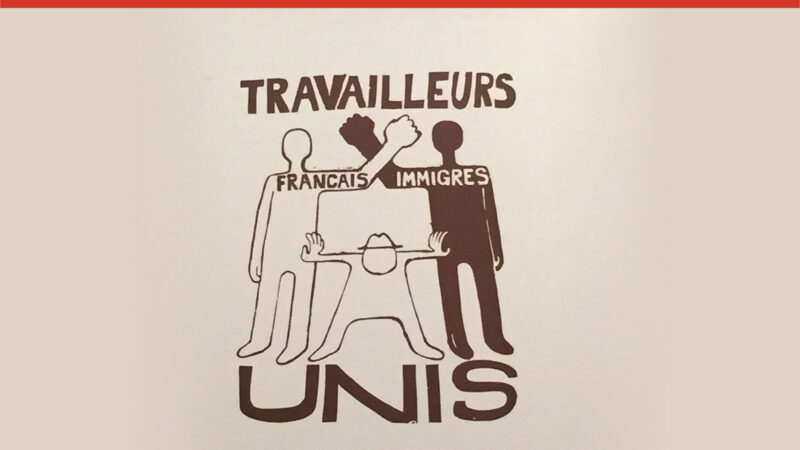
This week, the Labour Party made history: at conference in Brighton, Constituency Labour Party (CLP) and trade union delegates voted almost unanimously in favour of Composite 20, a motion based on the Labour Campaign for Free Movement’s model proposal. It calls on a future Labour government to enact a number of pro-migrant policies, including to defend and extend the free movement of people, end the hostile environment and close all detention centres.
For the most part, the campaign was a hard-fought grassroots effort with little support from major power players in the party. The motion was included – against the odds – in the list of prioritised policy motions thanks to overwhelming support and enthusiasm from Labour members. Because they understand that freedom of movement is a worker’s right.
Much has been said about the benefits of a skills-based system of work visas to replace free movement after Brexit. Some form of it is supported by both the Conservative Party (as outlined in their Immigration White Paper from December 2018 and Boris Johnson’s interest in an Australian-style points system) and the Labour Shadow Home Department team. Although we do not know yet how the proposals would differ in detail, the underlying premise remains: a worker’s worth, and their rights as a citizen, is determined by their value to the economy.
Visa-based immigration systems are usually linked to employer sponsorship, meaning that your visa is valid for as long as the employer needs your labour. This can obviously lead to problems for those who find themselves in an exploitative environment: workers will be less likely to challenge the conditions they find themselves in if they know their right to live in the country is tied to their continued employment. And even if a worker wishes to change employer, they can only do so if the new job provides sponsorship too. Looking through job applications online, it shows that it is not necessarily easy to find a new role that sponsors visas, limiting workers’ options.
Workers here under a work visa scheme are also heavily limited in their access to public funds. Under current Tier 2 Visa rules, people are required to pay a health surcharge to access NHS treatments and are not eligible for “public funds”. This policy – no recourse to public funds – was in Labour’s 2017 manifesto. It means that migrants are not able to access certain benefits such as child tax credit, child benefits, income-based jobseeker’s allowance and housing support.
These visas create a two-tier system of workers: the “native” worker who can participate in society fully, with access to services and our democratic structures through voting rights; and the foreign worker, a person here to serve the need of the economy without the ability to take full advantage of the services and social protections they help to fund.
Opponents of free movement on the left often describe it as a system that sees foreign workers as commodities for businesses to exploit. But a closer look at the work visa system shows that the opposite is true.
Although imperfect, citizens who are here under free movement rules currently enjoy the greatest possible advantages without holding citizenship. It’s a status not tied to an employer or subject to shortage occupation lists. It grants access to public funds and the NHS at no extra cost. And it even gives a small form of political agency through the ability to participate in local elections.
Those who see workers as pawns in the capitalist economy are therefore more likely to back “liberal” immigration rules allowing businesses to recruit foreign workers, but always under the condition that their visa comes with strings attached. The outrage directed at the Labour for Free Movement motion’s demand to extend voting rights was a perfect example of that attitude.
Neoliberal organisations want a system that “fills skills shortages” but don’t believe that foreign residents should have the same citizens rights as British born people. Clearly there is no good justification for this: it is a believe rooted in the view that British-born nationals are superior to foreigners and therefore more deserving, no matter the contribution to society migrants have made. The goal of the capitalist class is not to allow migrants to become part of a community and build a life, but to keep them at a short lead and dispose of them when capital is done with exploiting their labour.
Visa conditions also mean that rules have to be enforced by the state, otherwise why bother having them? This is the root cause of detention and deportation. Migrants who violate their visa conditions – for example by overstaying their time, which makes them “illegal” or undocumented immigrants – will be threatened by immigration enforcement officers, can be picked up in raids, found out through NHS and Home Office data sharing schemes and will be detained and deported.
Visa schemes tailored to the need of business, immigration rules and their violent enforcement through the state, detention and deportation are all pieces of the same puzzle. As socialists, we must oppose any such measures. Instead we have to fight for the rights of migrants to be modelled along free movement rights, for workers to be able to access public funds and to participate fully in our democracy through voting rights.
Free movement means breaking down barriers. Barriers to entry for all citizens to this country; to access to public services; to participating in our democratic structures. That is why Composite 20 must be included in Labour’s next manifesto.




More from LabourList
‘Tackling poverty should be the legacy of Keir Starmer’s government’
‘The High Court judgment brings more uncertainty for the trans community’
‘There are good and bad businesses. Labour needs to be able to explain the difference’